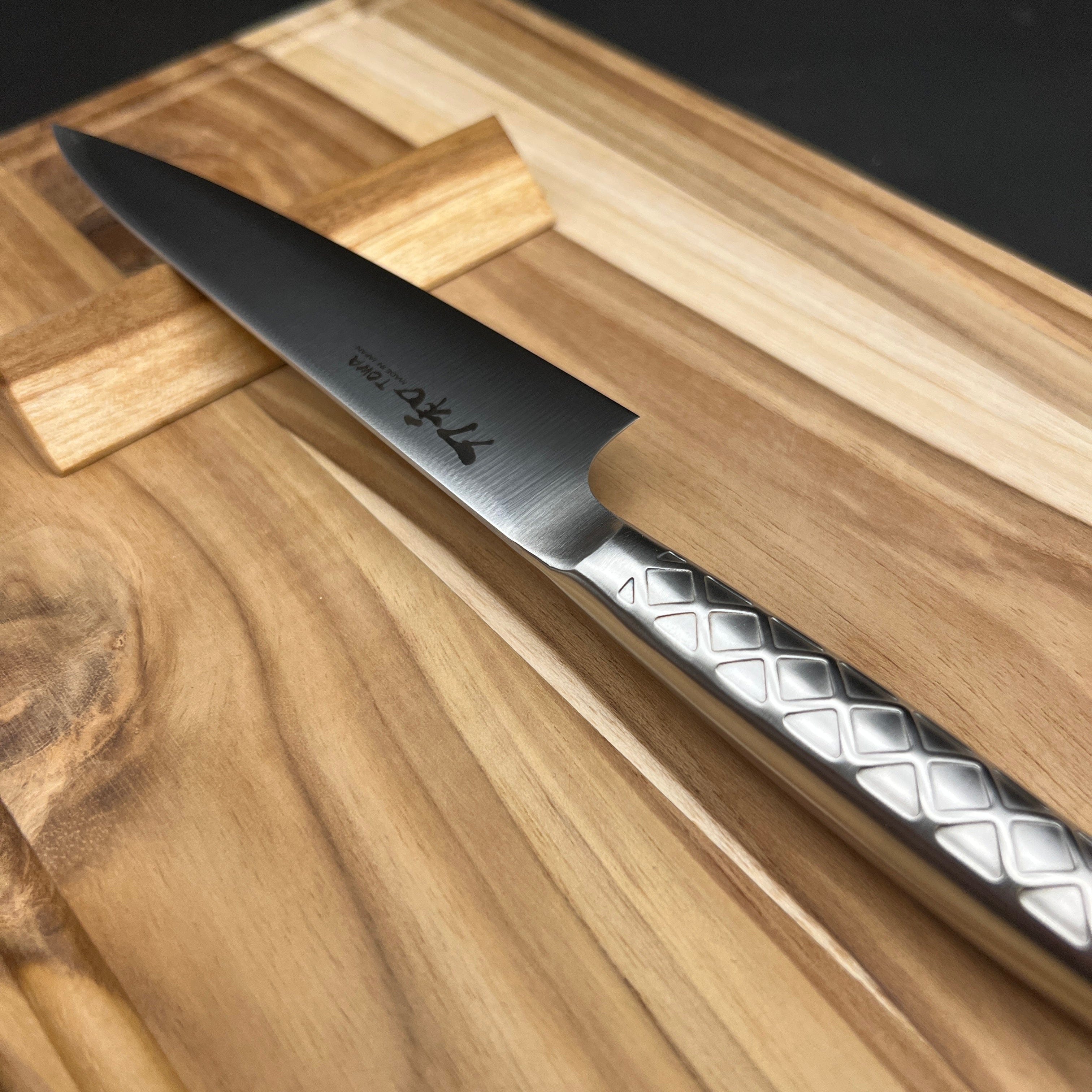
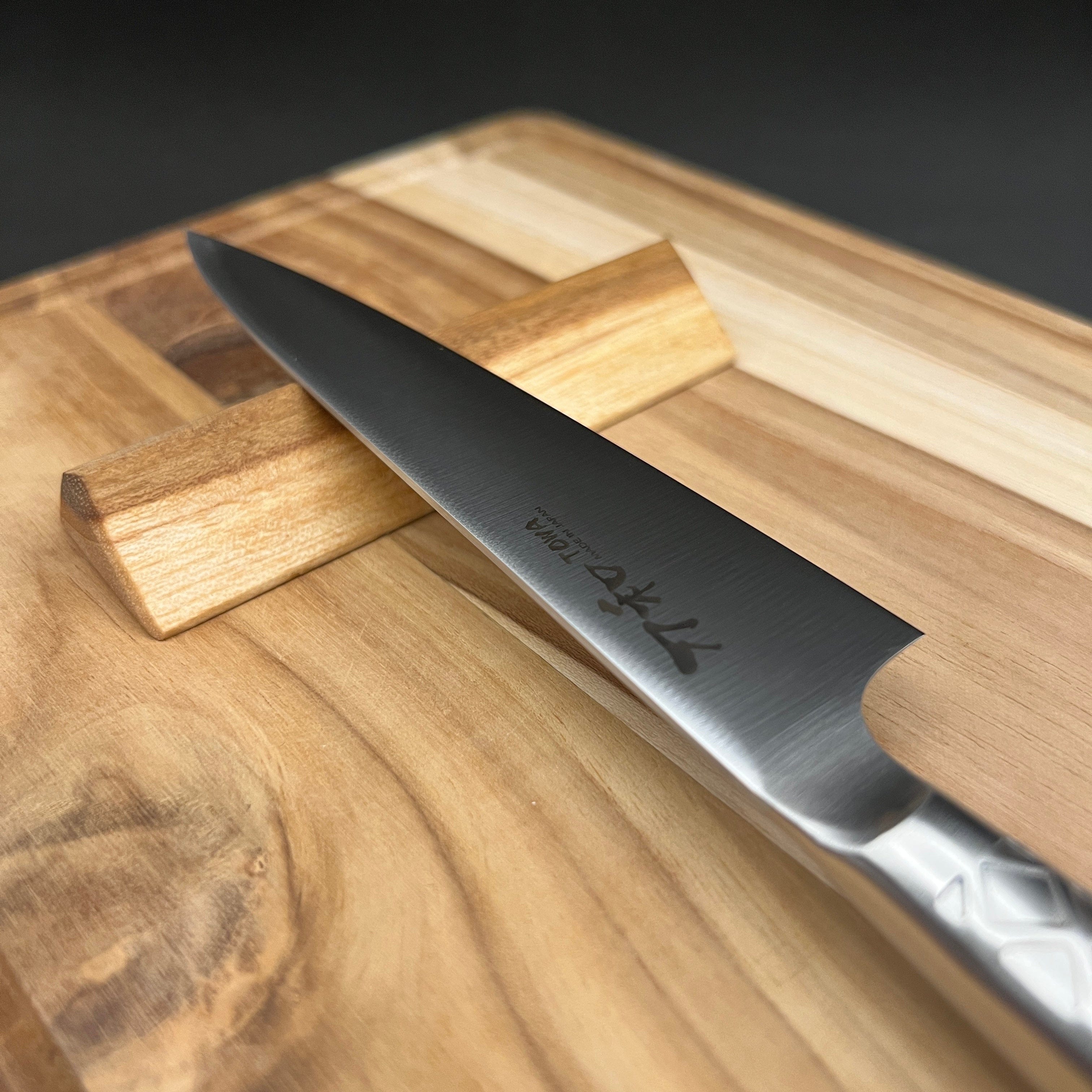
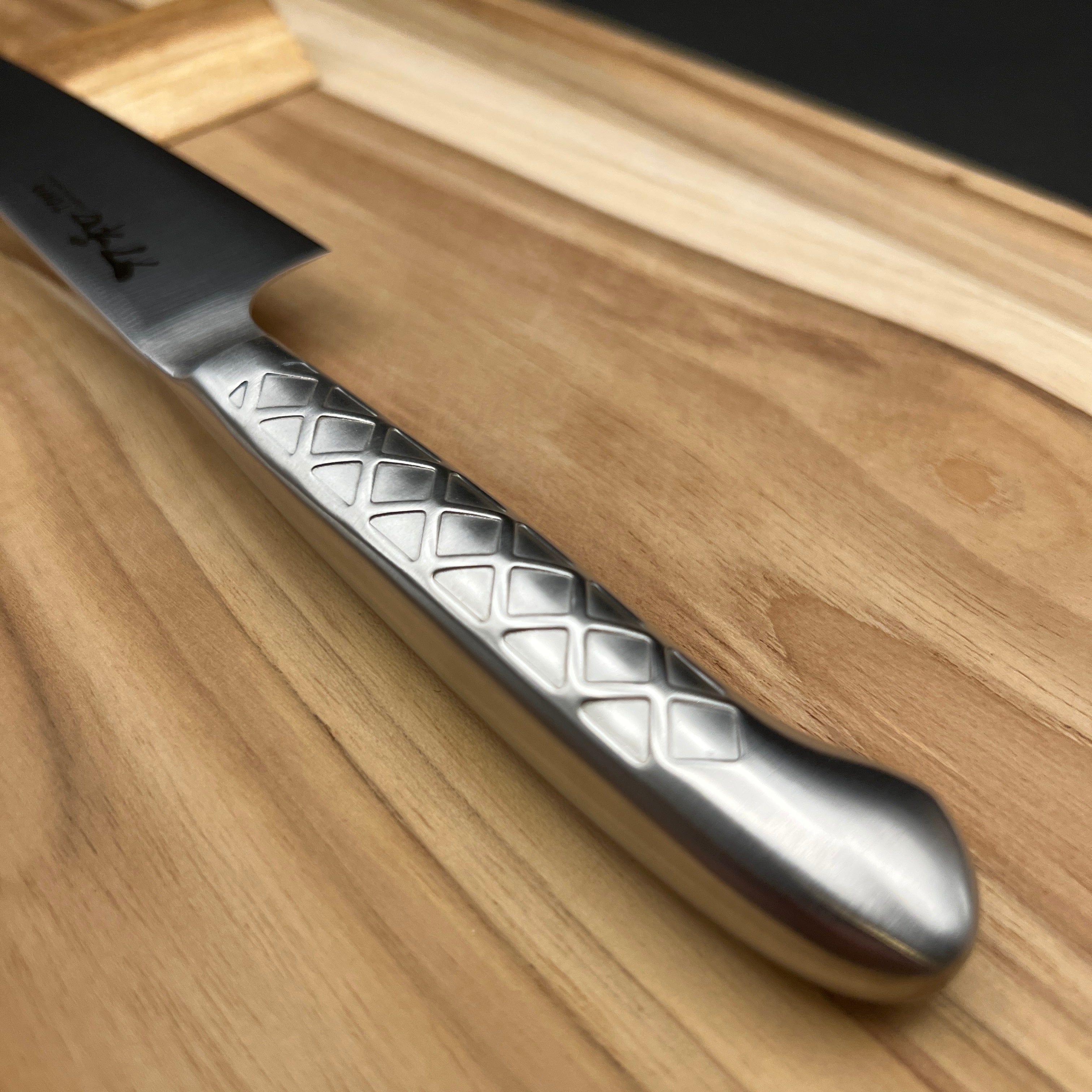
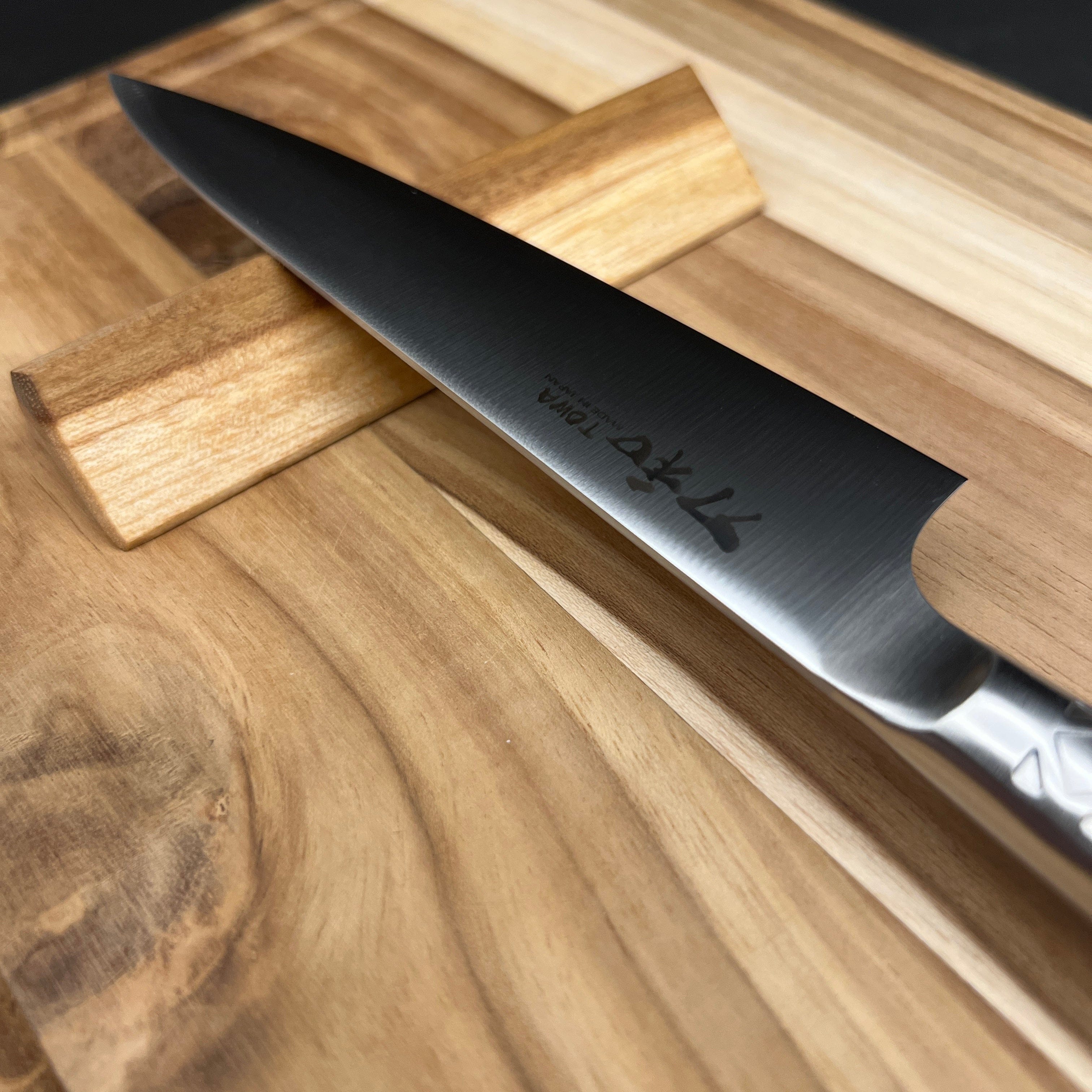
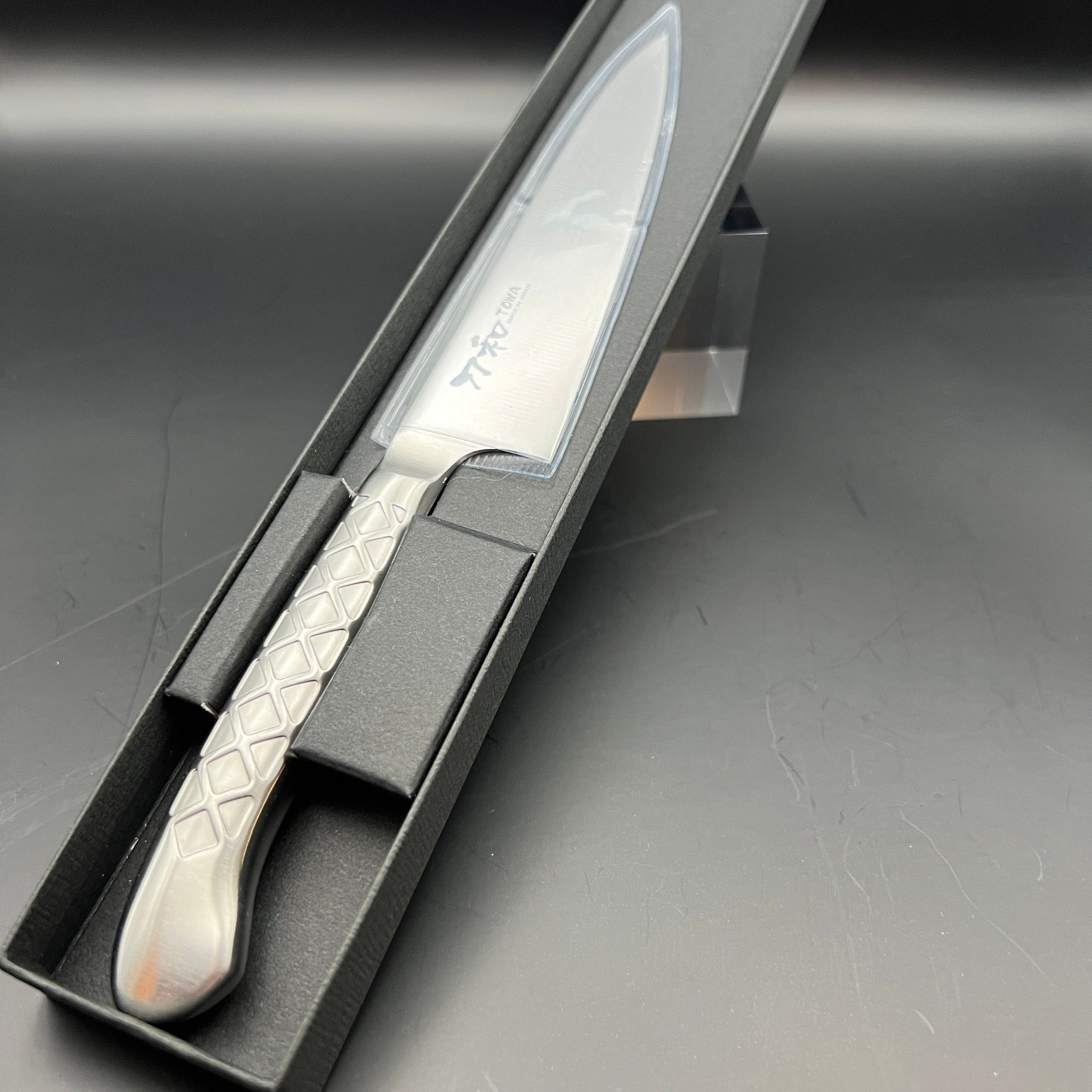
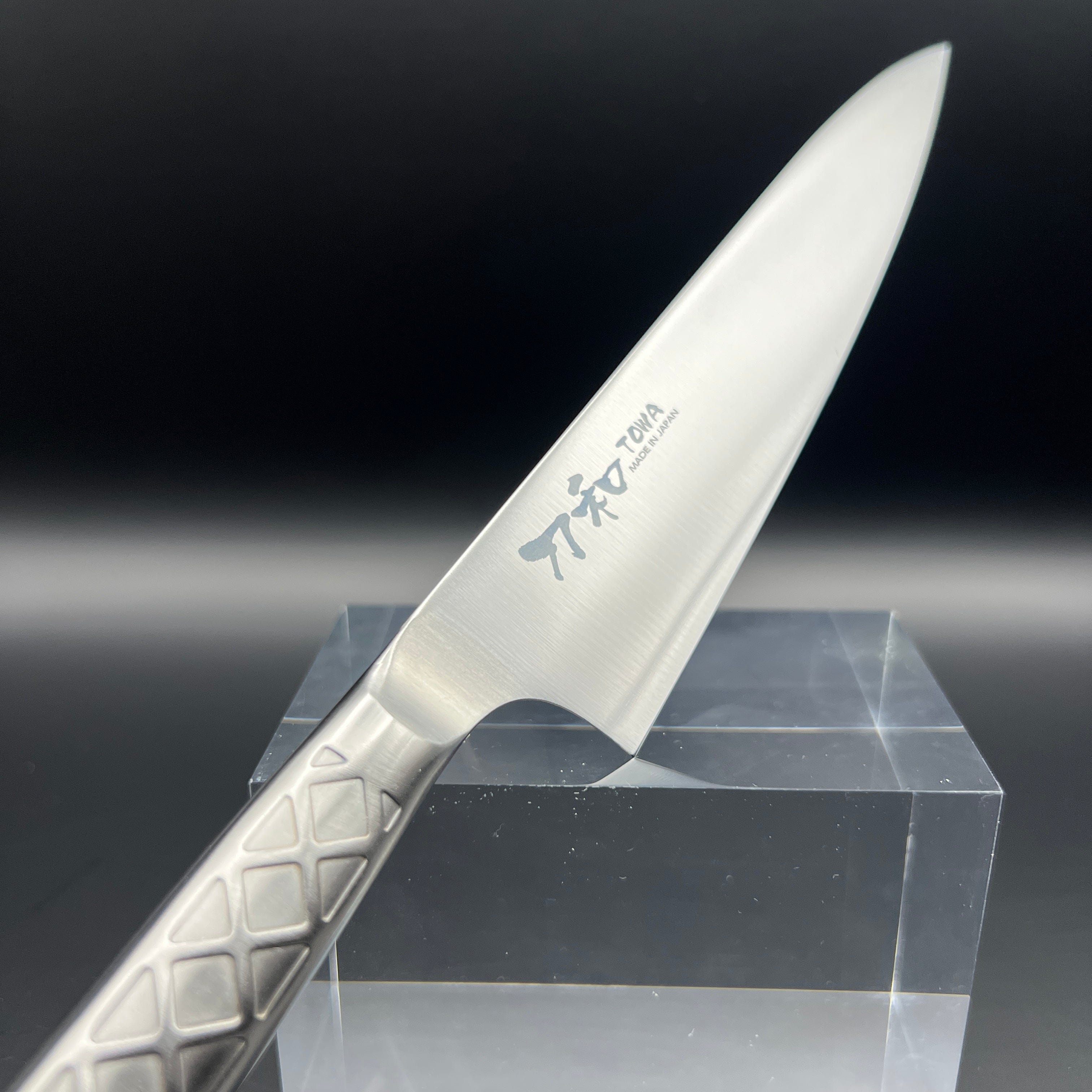
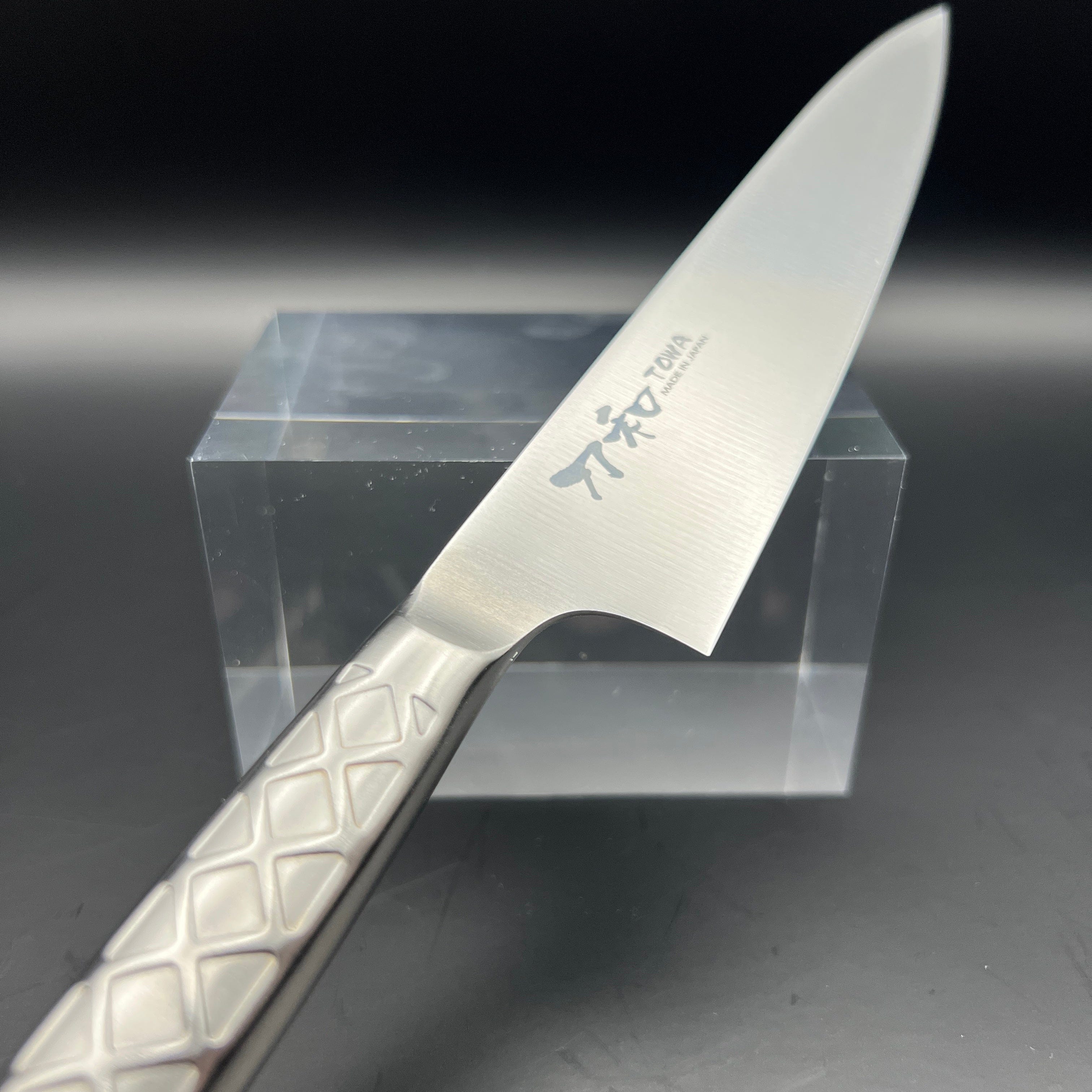
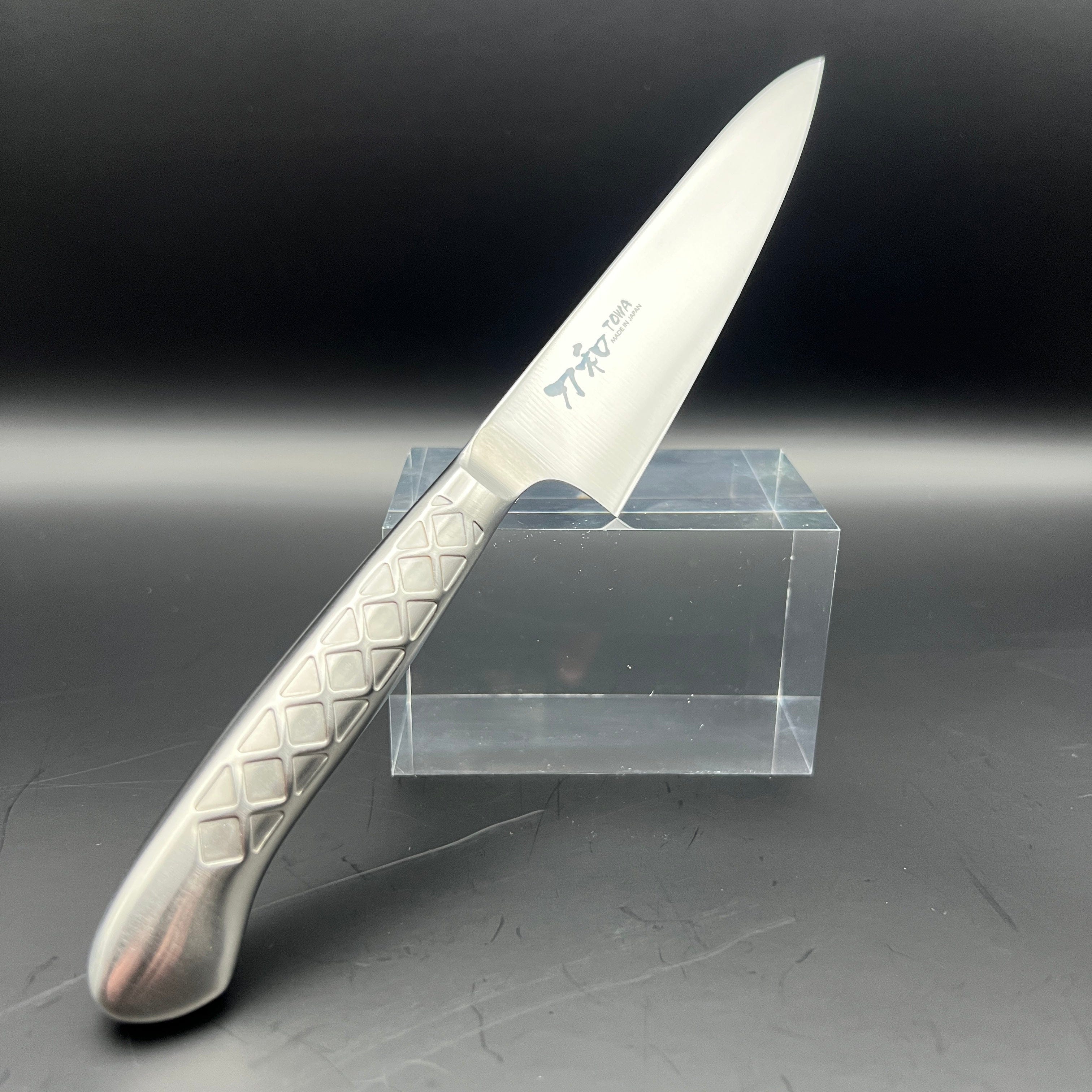
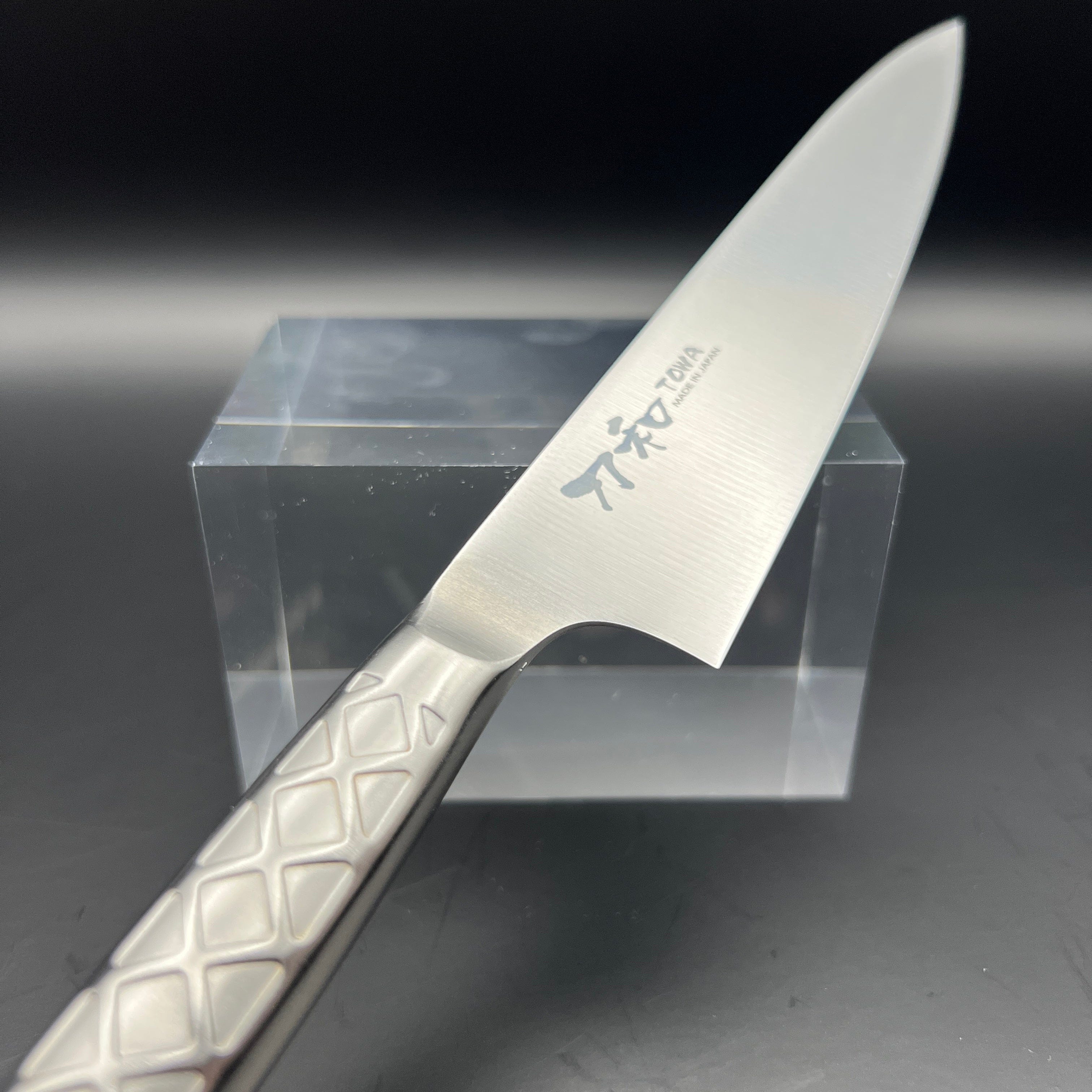
All-Stainless Santoku Petty Knife – 4.7 inches (12 cm)
Fast & Secure Delivery from Japan to your Door [Shipping Policy]
Shop Safely with Encrypted Checkout and Verified Gateways.
Pairs well with

All-Stainless Santoku Petty Knife – 4.7 inches (12 cm)
Effortless Precision, Japanese Craft – All-Stainless Petty Knife for Everyday Excellence
The Santoku All Stainless Steel Petty Knife – 4.7 in (12 cm) is a compact utility knife built for control, cleanliness, and unmatched ease of use. Proudly made in Japan, this authentic Japanese knife is forged from high-quality materials with expert attention to balance, weight, and long-term durability—perfect for precise daily prep in any kitchen.
With a one-piece, all-stainless-steel design, there are no joints, seams, or materials that can rust or degrade over time. The blade is crafted from molybdenum steel, offering excellent sharpness and edge retention, while the clam-shaped blade profile provides a gentle “bite” into food, making each slice smooth and controlled. The handle, made from hygienic 18-8 stainless steel, offers an ergonomic grip that remains comfortable even after extended use.
Why it’s a staple:
- 100% Japanese-made with traditional craftsmanship and modern performance
- 4.72 in (12cm) blade – Ideal for fruit, herbs, vegetables, and intricate prep
- All-stainless body – Seamless, rust-resistant, and dishwasher-safe
- Lightweight and well-balanced – Easy to control, perfect for quick tasks
- Excellent second knife – A compact complement to full-sized chef’s knives
Whether you’re slicing apples, chopping ginger, or preparing garnishes, this petty knife is the small blade that does it all. Its compact size makes it ideal for kitchens with limited space and users who want precision without the bulk. With increasing popularity among home cooks and professionals alike, it’s a trusted choice for anyone who appreciates efficiency and craftsmanship.
Product Information
Care instructions
Maker
Note
FAQs
All you need to know about Japanese Knives.
What makes Japanese knives different from Western knives?
Japanese knives typically feature harder steel, thinner and sharper blades, and lighter handles compared to Western knives. These characteristics allow for precision cutting, especially suited for detailed culinary tasks, but require careful maintenance to preserve sharpness and avoid damage.
How should I maintain and sharpen a Japanese knife?
Regularly hand-wash and dry your knife immediately after use to prevent rust and corrosion. Sharpen using a whetstone designed specifically for Japanese knives, maintaining a consistent angle (usually around 15 degrees). Avoid dishwashers and harsh cleaning methods to preserve blade integrity.
Can Japanese knives be used for any type of food preparation?
While versatile, certain Japanese knives are specialized: Gyuto (chef’s knife) handles most ingredients, Santoku excels in chopping vegetables and meats, while Yanagiba is specifically suited for slicing sashimi and seafood. Selecting the right knife enhances performance and preserves blade condition.
Why are Japanese knives often more expensive?
Japanese knives are handcrafted, employing traditional methods and premium high-carbon steel, which contributes to their exceptional sharpness, durability, and aesthetics. This artisanal craftsmanship and the high-quality materials used typically result in higher pricing compared to mass-produced knives.
Are Japanese knives suitable for beginners?
Yes, beginners can effectively use Japanese knives, but it’s essential to start with user-friendly styles like Santoku or Gyuto, known for balanced handling and versatility. Proper care, handling, and regular sharpening practices will ensure a positive experience, even for novices.

